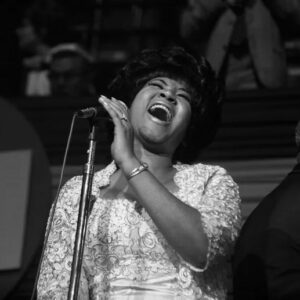From the very first note of her 2000 debut album Can’t Take Me Home, P!nk (born Alecia Beth Moore) announced herself as an unorthodox force in the world of pop music. Over the past two decades, P!nk has evolved from a rebellious pop singer to one of the most distinctive, multifaceted, and enduring artists of her generation. Known for her rock-infused pop sound, brash persona, and unapologetic lyrics, P!nk has crafted a musical career that’s as resilient and diverse as her ever-expanding fanbase. This article takes a deep dive into P!nk’s musical evolution, from her early days in the industry to her current status as a global superstar, exploring how her sound, image, and message have transformed over time.
Early Years in the Music Industry: Pop Star in the Making
Born in Doylestown, Pennsylvania, P!nk was introduced to the music world at a young age, initially as part of the R&B scene. Her debut album Can’t Take Me Home (2000) was a product of that early exposure, featuring an R&B-pop hybrid with heavy hip-hop influences. Produced by Babyface, the album was a departure from the teen pop that dominated the era. Tracks like “There You Go” and “Most Girls” introduced P!nk as a confident, independent artist, far more raw and authentic than her contemporaries.
Yet, even with the success of the album’s commercial singles, P!nk was dissatisfied with the direction of her career. The image crafted for her by her record label, an upbeat, radio-friendly pop star, didn’t align with her personal vision or musical inclinations. This tension would be the catalyst for a major shift in both her sound and image.
The Shift to Pop-Rock and Identity Reinvention
By 2001, P!nk had already begun to outgrow her initial pop image. Her sophomore album Missundaztood marked a critical turning point. With the help of renowned producer Linda Perry (of 4 Non Blondes fame), P!nk pivoted towards a more raw, rock-inspired sound that would define much of her future work. Missundaztood featured hits like “Get the Party Started” and “Just Like a Pill,” tracks that balanced commercial appeal with a much edgier, rebellious tone.
The album’s success wasn’t just about the music—it was about the persona that P!nk had cultivated. No longer the bubblegum pop star, she was now a fiery, independent figure who had no time for the expectations of the music industry or the media. “I don’t want to be your pop princess,” P!nk famously proclaimed, setting the stage for her to embrace a more authentic, unapologetic identity.
Through Missundaztood, P!nk tackled themes of personal freedom, heartbreak, and rebellion, with lyrics that resonated with listeners who were also grappling with their own struggles. “Don’t let me get me” became an anthem for those who felt trapped by societal expectations, and “Just Like a Pill” showcased a darker, more introspective side of the artist. It was a breakthrough album, not just in terms of commercial success, but in terms of its deep, personal connection to the audience. P!nk had found her voice—and it was loud, bold, and unrelenting.
By 2003, P!nk’s exploration of pop-rock continued with Try This, a more experimental follow-up that incorporated elements of punk and hard rock. Songs like “Trouble” and “God Is a DJ” highlighted her ability to blend genres while maintaining her fierce individuality. Try This wasn’t as commercially successful as Missundaztood, but it reinforced P!nk’s status as an artist unwilling to be pigeonholed into a single sound. More than ever, she was determined to push boundaries, exploring darker, more confrontational material that reflected her evolving worldview.
P!nk’s Personal Life and Public Image
As P!nk’s sound evolved, so too did her public image. While her music remained personal and often confessional, her real-life relationships—particularly her tumultuous marriage to motocross racer Carey Hart—became a focal point of her songwriting. This was most evident in her 2008 album Funhouse, a record deeply influenced by the breakdown of her marriage and the emotional aftermath.
Funhouse was both a cathartic release and a musical reinvention. Songs like “So What” and “Sober” embodied P!nk’s signature blend of self-empowerment and vulnerability. The album’s sound was also a departure from her earlier work, with a more polished pop-rock edge, yet still imbued with the gritty attitude that had defined her career. In tracks like “Please Don’t Leave Me,” P!nk explored the emotional chaos of a relationship on the brink of collapse, while “I Don’t Believe You” revealed a softer, more introspective side of the artist.
Throughout her career, P!nk has used her personal experiences—both the highs and the lows—as fuel for her music. Her motherhood, for example, became a significant theme in her 2012 album The Truth About Love, which was widely seen as a reflection of her experiences as a wife and mother. The album’s title track and singles like “Just Give Me a Reason” (featuring Nate Ruess) explored themes of love, loss, and the complexities of adult relationships, marking P!nk’s transition from the defiant, independent pop-punk princess of her early years to a more mature, emotionally nuanced artist.
Collaborations and Experimentation
In addition to her personal evolution, P!nk’s musical journey has been marked by an ongoing series of collaborations and creative experiments. She has worked with some of the most respected names in music, including Eminem (“Revenge”), Chris Stapleton (“Love Me Anyway”), and even legendary rock bands like Green Day (“Troublemaker”).
These collaborations have allowed P!nk to explore new sounds and genres, whether it’s her country-inspired ventures in Hurts 2B Human or her acoustic performances on Beautiful Trauma. P!nk has never shied away from experimenting with different musical styles. With Hurts 2B Human (2019), she took her music in a more polished, radio-friendly direction, incorporating elements of pop, dance, and even electronic music. But despite the more mainstream sound, the album still retained P!nk’s core message of resilience and self-empowerment.
The 2010s also saw P!nk collaborate with artists from different corners of the musical landscape, proving her versatility as an artist. Her partnership with the legendary Dolly Parton on “Coat of Many Colors” and her collaboration with country singer Chris Stapleton further cemented her reputation as a genre-defying artist unafraid to explore new territory.
P!nk’s Activism and Social Impact
Beyond her music, P!nk has emerged as one of the most vocal and visible advocates for social justice, mental health awareness, and LGBTQ+ rights. Her music has always been a reflection of her progressive values, but in recent years, she has increasingly used her platform to speak out on political and social issues. In 2017, for example, her performance of “What About Us” at the American Music Awards was a powerful political statement, drawing attention to issues such as gender inequality, racial injustice, and the turmoil of the Trump-era political landscape.
P!nk’s advocacy for mental health, in particular, has been a defining aspect of her post-2010 music. Albums like The Truth About Love and Beautiful Trauma were not just about personal struggles, but also a reflection of her commitment to mental health awareness. Tracks like “Just Give Me a Reason” and “What About Us” explored the vulnerability that comes with mental health challenges, while “Stupid Girls” and “F**kin’ Perfect” were anthems of self-acceptance and resilience.
P!nk’s transparency about her own struggles—whether with body image, addiction, or depression—has given her fans permission to be open about their own issues. She is an artist who has consistently used her platform to challenge stereotypes, promote empathy, and encourage social change.
Recent Works and Contemporary Sound
P!nk’s more recent albums, including Beautiful Trauma (2017) and Hurts 2B Human (2019), showcase an artist who has reached a level of musical maturity while still retaining her rebellious spirit. These albums blend elements of pop, rock, and electronic music, reflecting the evolving sounds of the mainstream while staying true to P!nk’s signature style.
What makes P!nk’s contemporary work stand out is how she’s managed to remain relevant in an ever-changing music landscape. Her collaborations with producers like Max Martin and Jack Antonoff have brought fresh, innovative sounds into her repertoire, while her commitment to personal authenticity and social advocacy has kept her voice distinct in a crowded pop world.
Conclusion: A Legacy of Reinvention and Resilience
From her early days as a teen pop star to her evolution as a rock-infused pop icon, P!nk’s career is a testament to the power of reinvention. She has always been unafraid to challenge the norms of the music industry, choosing to follow her artistic instincts and speak out on the issues that matter most to her. P!nk’s journey is not just one of musical transformation, but of personal growth and social consciousness.
Through her raw, unapologetic approach to music and her fearless advocacy for change, P!nk has remained a beacon of authenticity in an often superficial industry. She has proven that it’s possible to evolve without compromising who you are—a message that resonates with fans around the world. In a music landscape that often prizes conformity, P!nk continues to thrive by staying true to herself while always pushing forward. It’s this unique blend of resilience, reinvention, and relevance that has cemented P!nk as one of the most iconic and enduring artists of her generation.





